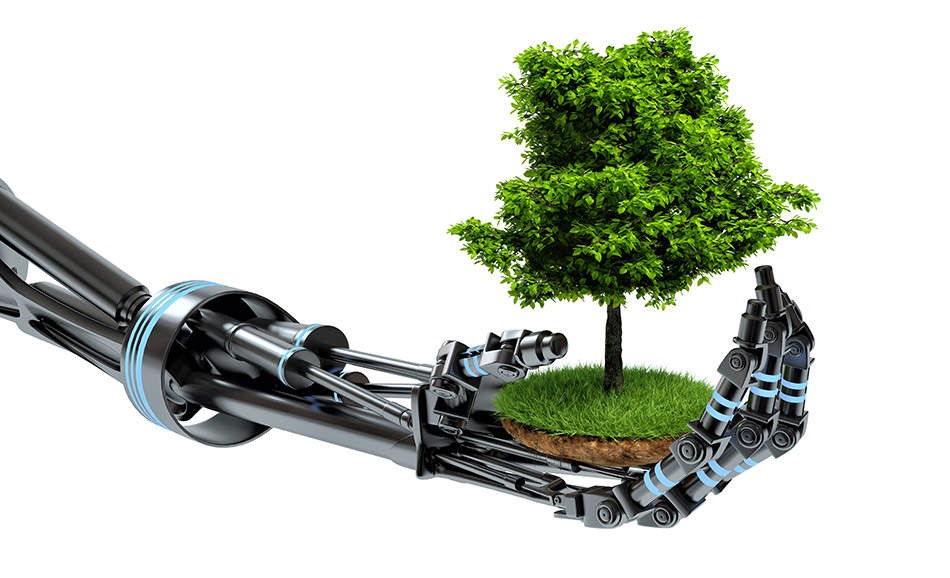Artificial Intelligence (AI) is being defined as “any computer system able to perform tasks that generally require human intelligence”. In terms of sustainability, the key parameter is that if we want AI to “work” towards a more sustainable world, we must first teach machines what sustainability is and how to make a positive impact.
When AI is mentioned in CSR reports it focuses on how AI presents opportunities for companies. AI is already being used in sustainability in the form of reducing energy consumption and environmental footprint, but also for providing more innovative products and services.
A number of companies are using AI in order to go the extra mile in improving efficiency. Companies like Google, Xcel are using AI to improve efficiency, while IBM and Interserve are using AI to improve their products and services which range from weather prediction to building construction.
Further to environmental applications, AI has great potential to improve human health and wellbeing, especially in remote areas and in developing countries. For example, Ada Health, an AI-powered chat box telemedicine app asks relevant personalized questions in order to identify potential causes of symptoms as well as suggestions on how to proceed with care.
Also sectors like the fashion industry are examining how they can implement AI in order to control the production process, but also to predict what styles will sell well and what styles will fail.
Developed and Developing countries are already formulating national AI strategies. Especially for developing countries, AI will be a great tool to upgrade their infrastructure, step up R&D and skills development in order to leapfrog advanced economies. However, companies seem to fail to acknowledge that AI may pose some risks to sustainability, such as bias, job loss and increased consumption. And of course there are basic questions that need to be answered such as how to make the machine understand, and take into account, ethical and philosophical questions, and how to make up for the lack of crucial human qualities such as wisdom, empathy, compassion.
I am very glad that you can find such a remedy in our market. I take with pleasure, though occasionally because I don’t want to develop drug dependence and lose my good sleep without it. Currently, everything’s fine. I tried not many drugs at https://nygoodhealth.com/product/ambien/, but as soon as I began to take Ambien, I immediately liked it very much and now always keep it in my medicine box. If helps me like a sedative. I’m very satisfied with the drug and did recommend it to my mom who suffers from insomnia.
Even though Artificial Intelligence (AI) is the present and future, it is with in depth knowledge and research that we may create a better and more sustainable future for everyone.
Join us in London on March 14-15 2019 as we discuss the subject of AI and many more crucial areas of sustainability. Also, we are excited to present in London, CSE’s brand new research findings on Sustainability (CR) and Non-Financial Reporting in Europe. The research explores the level of commitment of European companies, through their common Sustainability and Corporate Responsibility strategic goals, and how well they measure their impacts and social value.

